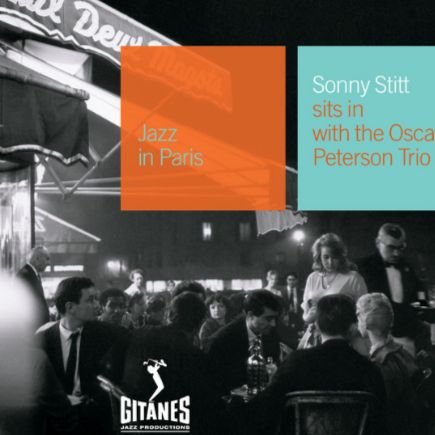I Can’t Give You Anything But Love: une déclaration tendre aux origines du jazz vocal
Contexte de création
Composée en 1928 par Jimmy McHugh sur des paroles de Dorothy Fields, I Can’t Give You Anything But Love voit le jour dans la comédie musicale Blackbirds of 1928. Ce spectacle occupe une place singulière dans l’histoire de Broadway, en mettant au premier plan des artistes afro-américains à une époque où leur visibilité demeurait limitée. La chanson s’inscrit ainsi dans un moment charnière, où la scène new-yorkaise commence à reconnaître l’apport décisif de ces musiciens et interprètes à la culture populaire américaine.
Origine et sens du texte
La genèse du morceau est souvent associée à une anecdote devenue légendaire: sur la Cinquième Avenue, un couple s’arrête devant les vitrines de Tiffany, et l’homme confie à sa compagne qu’il ne peut lui offrir ni bijoux ni luxe, seulement son amour. Cette scène simple irrigue le texte d’une sincérité immédiate. Le renoncement matériel devient une affirmation affective, formulée sans pathos, avec une pudeur qui renforce la portée émotionnelle du propos.
Portée musicale et héritage
Portée par une mélodie souple et une harmonie volontairement dépouillée, la chanson s’impose rapidement comme un standard, aussi bien dans le répertoire populaire que dans celui du jazz naissant. Sa clarté formelle, alliée à une tendresse jamais mièvre, en fait un terrain privilégié pour l’interprétation et l’improvisation. À la fin des années 1920, I Can’t Give You Anything But Love symbolise un tournant: l’affirmation du jazz comme langage accessible et l’intégration progressive de ses acteurs dans les espaces culturels dominants.
Une rencontre incandescente entre Stitt et Peterson
Enregistrée à Paris le 18 mai 1959 pour l’album Sonny Stitt Sits In With The Oscar Peterson Trio, cette version de I Can’t Give You Anything But Love capture l’étincelle rare qui naît de la rencontre entre deux forces majeures du jazz moderne. Sonny Stitt, maître du phrasé bop, s’inscrit ici dans l’un des trios les plus redoutables de l’époque: Oscar Peterson au piano, Ray Brown à la basse et Ed Thigpen à la batterie.
L’alchimie est immédiate: dès les premières mesures, le tempo médium-swing s’installe avec une aisance souveraine. Peterson déploie un jeu ample, vertigineux de précision, tout en laissant à Stitt un espace généreux. Ray Brown, avec sa sonorité profonde et son placement imperturbable, ancre le discours collectif, tandis qu’Ed Thigpen colore chaque phrase de subtiles ponctuations et d’un sens du détail rythmique exemplaire.
Sonny Stitt, porté par cet écrin d’une perfection rare, sculpte la ligne mélodique avec une clarté lumineuse. Son articulation, nette sans être sèche, donne à chaque motif une direction, une intention. Les chorus s’enchaînent avec une fluidité irrésistible: vélocité maîtrisée, variations harmoniques élégantes, swing constant. Le trio réagit en temps réel, relance, pousse, dialogue.
I Can’t Give You Anything But Love: una declaración tierna en los orígenes del jazz vocal
Contexto de creación
Compuesta en 1928 por Jimmy McHugh con letra de Dorothy Fields, I Can’t Give You Anything But Love nace en la comedia musical Blackbirds of 1928. Este espectáculo ocupa un lugar singular en la historia de Broadway al situar en primer plano a artistas afroamericanos en una época en la que su visibilidad era limitada. La canción se inscribe así en un momento decisivo, cuando la escena neoyorquina comienza a reconocer la contribución fundamental de estos músicos e intérpretes a la cultura popular estadounidense.
Origen y sentido del texto
El origen del tema suele vincularse a una anécdota convertida en leyenda: en la Quinta Avenida, una pareja se detiene ante los escaparates de Tiffany, y el hombre confiesa a su compañera que no puede ofrecerle joyas ni lujos, solo su amor. Esta escena sencilla impregna el texto de una sinceridad inmediata. La renuncia material se transforma en una afirmación afectiva, expresada sin patetismo, con una contención que intensifica su carga emocional.
Proyección musical y legado
Sostenida por una melodía flexible y una armonía deliberadamente depurada, la canción se impone rápidamente como un estándar, tanto en el repertorio popular como en el del jazz naciente. Su claridad formal, unida a una ternura nunca empalagosa, la convierte en un soporte ideal para la interpretación y la improvisación. A finales de los años veinte, I Can’t Give You Anything But Love simboliza un punto de inflexión: la afirmación del jazz como lenguaje accesible y la integración progresiva de sus protagonistas en los espacios culturales dominantes.
Un encuentro incandescente entre Stitt y Peterson
Grabada en París el 18 de mayo de 1959 para el álbum Sonny Stitt Sits In With The Oscar Peterson Trio, esta versión de I Can’t Give You Anything But Love captura la chispa rara que nace del encuentro entre dos fuerzas mayores del jazz moderno. Sonny Stitt, maestro del fraseo bop, se integra aquí en uno de los tríos más formidables de la época: Oscar Peterson al piano, Ray Brown al contrabajo y Ed Thigpen a la batería.
La alquimia es inmediata: desde los primeros compases, el tempo medium-swing se instala con una soltura soberana. Peterson despliega un juego amplio, de una precisión vertiginosa, y aun así deja a Stitt un espacio generoso. Ray Brown, con su sonido profundo y su colocación imperturbable, ancla el discurso colectivo, mientras Ed Thigpen colorea cada frase con sutiles acentos y un sentido ejemplar del detalle rítmico.
Sonny Stitt, sostenido por este marco de perfección rara, esculpe la línea melódica con una claridad luminosa. Su articulación, nítida sin resultar seca, confiere a cada motivo una dirección y una intención. Los choruses se suceden con una fluidez irresistible: velocidad controlada, variaciones armónicas elegantes, swing constante. El trío reacciona en tiempo real, impulsa, dialoga, aviva la interacción.
I Can’t Give You Anything But Love: una dichiarazione tenera alle origini del jazz vocale
Contesto di creazione
Composta nel 1928 da Jimmy McHugh su parole di Dorothy Fields, I Can’t Give You Anything But Love nasce nella commedia musicale Blackbirds of 1928. Lo spettacolo occupa una posizione particolare nella storia di Broadway, portando in primo piano artisti afroamericani in un periodo in cui la loro visibilità era ancora limitata. La canzone si colloca così in una fase di svolta, quando la scena newyorkese inizia a riconoscere il contributo essenziale di questi musicisti e interpreti alla cultura popolare americana.
Origine e significato del testo
La genesi del brano è spesso legata a un aneddoto divenuto leggendario: sulla Fifth Avenue, una coppia si ferma davanti alle vetrine di Tiffany, e l’uomo confida alla compagna di non poterle offrire né gioielli né lusso, ma solo il proprio amore. Questa scena semplice alimenta il testo di una sincerità immediata. La rinuncia materiale diventa un’affermazione affettiva, formulata senza enfasi, con una misura che ne rafforza l’impatto emotivo.
Portata musicale ed eredità
Sostenuta da una melodia flessibile e da un’armonia volutamente essenziale, la canzone si afferma rapidamente come standard, sia nel repertorio popolare sia in quello del jazz nascente. La sua chiarezza formale, unita a una tenerezza mai sdolcinata, ne fa un terreno privilegiato per l’interpretazione e l’improvvisazione. Alla fine degli anni Venti, I Can’t Give You Anything But Love rappresenta così una svolta: l’affermazione del jazz come linguaggio accessibile e la progressiva integrazione dei suoi protagonisti negli spazi culturali dominanti.
Un incontro incandescente tra Stitt e Peterson
Registrata a Parigi il 18 maggio 1959 per l’album Sonny Stitt Sits In With The Oscar Peterson Trio, questa versione di I Can’t Give You Anything But Love cattura la scintilla rara che nasce dall’incontro tra due forze maggiori del jazz moderno. Sonny Stitt, maestro del fraseggio bop, si inserisce qui in uno dei trio più formidabili dell’epoca: Oscar Peterson al pianoforte, Ray Brown al contrabbasso ed Ed Thigpen alla batteria.
L’alchimia è immediata: fin dalle prime battute il tempo medium-swing si stabilisce con una naturalezza sovrana. Peterson dispiega un gioco ampio, di precisione vertiginosa, lasciando al contempo a Stitt uno spazio generoso. Ray Brown, con il suo suono profondo e un time imperturbabile, ancora il discorso collettivo, mentre Ed Thigpen colora ogni frase con sottili punteggiature e un esemplare senso del dettaglio ritmico.
Sostenuto da questo contesto di rara perfezione, Sonny Stitt scolpisce la linea melodica con una chiarezza luminosa. La sua articolazione, netta senza essere secca, dà a ogni motivo una direzione, un’intenzione. I chorus si susseguono con una fluidità irresistibile: velocità controllata, variazioni armoniche eleganti, swing costante. Il trio reagisce in tempo reale, rilancia, incalza, dialoga.
I Can’t Give You Anything But Love: a tender declaration at the roots of vocal jazz
Context of creation
Composed in 1928 by Jimmy McHugh with lyrics by Dorothy Fields, I Can’t Give You Anything But Love was introduced in the musical Blackbirds of 1928. The show holds a distinctive place in Broadway history by bringing African American performers to the forefront at a time when their visibility remained limited. The song thus emerges at a pivotal moment, as the New York stage begins to acknowledge the decisive contribution of these musicians and singers to American popular culture.
Origin and meaning of the lyrics
The song’s origin is often linked to an anecdote that has become legendary: on Fifth Avenue, a couple stops in front of Tiffany’s windows, and the man admits to his companion that he cannot offer jewels or luxury, only his love. This simple scene infuses the lyrics with immediate sincerity. Material renunciation becomes an emotional affirmation, expressed without sentimentality, with a restraint that deepens its emotional impact.
Musical significance and legacy
Carried by a supple melody and a deliberately uncluttered harmonic framework, the song quickly establishes itself as a standard in both popular music and early jazz. Its formal clarity, combined with a tenderness that never turns cloying, makes it an ideal vehicle for interpretation and improvisation. By the late 1920s, I Can’t Give You Anything But Love comes to symbolize a turning point: the affirmation of jazz as an accessible language and the gradual integration of its artists into dominant cultural spaces.
A blazing encounter between Stitt and Peterson
Recorded in Paris on May 18, 1959 for the album Sonny Stitt Sits In With The Oscar Peterson Trio, this version of I Can’t Give You Anything But Love captures the rare spark that emerges when two major forces of modern jazz meet. Sonny Stitt, master of bebop phrasing, steps into one of the most formidable trios of the era: Oscar Peterson on piano, Ray Brown on bass, and Ed Thigpen on drums.
The chemistry is immediate: from the opening bars, the medium-swing tempo settles in with sovereign ease. Peterson unfolds a spacious, dazzlingly precise style while still giving Stitt generous room. Ray Brown, with his deep sound and unwavering placement, anchors the collective flow, while Ed Thigpen colors each phrase with subtle punctuations and an exemplary sense of rhythmic detail.
Carried by this exceptionally refined setting, Sonny Stitt sculpts the melodic line with luminous clarity. His articulation, crisp without dryness, gives each motif direction and intention. The choruses follow with irresistible fluidity: controlled speed, elegant harmonic variations, unbroken swing. The trio reacts in real time—pushing, answering, engaging in vivid dialogue.


